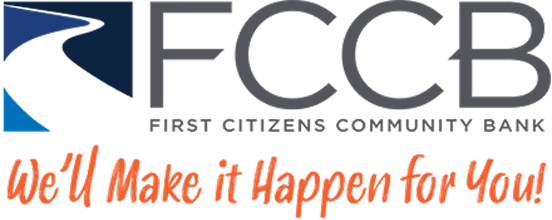The Three Important Documents You Need for an Estate Plan
To ensure you and your family are cared for in the event of your death or incapacity, you should prepare these three important documents: A Financial Power of Attorney, A Healthcare Power of Attorney and Living Will, and your Last Will and Testament.
Financial Power of Attorney
With the Financial Power of Attorney, you choose a person to handle your financial affairs in the event you are unable to do so while you are alive. FCCB can serve as agent under your financial power of attorney if you do not have a trusted friend or family member to assume this role.
Healthcare Power of Attorney
It allows the person you choose to direct healthcare decisions for you instead of financial decisions. This can be the same individual as the person named in your Financial Power of Attorney or you can select someone else who you trust.
Living Will
The Living Will allows you to provide instructions as to what kind of care you would want if you were unable to give directions to your doctor yourself and you were suffering from a terminal illness or injury. After you pass away, the agent you’ve named in your powers of attorney no longer has control.These documents are no longer relevant upon death, which is why it is important to have a Will in place.
A Will allows you to direct who receives your assets after death as well as a number of other functions. In your Will, you name a person, called an executor, who will be responsible for administering your estate.You can name FCCB as executor in your Will if you would like the bank rather than a grieving loved one to take on the responsibility. Regardless of who you choose, the executor must follow the provisions you’ve outlined in your Will.
Trust Document
A Trust is a written legal agreement between the person creating the Trust and the person who administers it as to how certain property may be used. You can choose to have the Trust managed by a professional – such as FCCB – by naming the bank as trustee in your trust.
Not a deposit, not FDIC-insured, not insured by any federal government agency, not guaranteed by the bank, and may go down in value.


